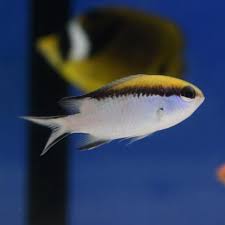For centuries, tea has been an integral part of Chinese culture, not only as a refreshing beverage but also as a cornerstone of traditional medicine. Chinese tea, particularly fresh tea like green tea, oolong, white tea, and Pu-erh, has been recognized for its numerous health benefits, many of which extend to the nervous system. The Chinese have long believed in the healing properties of tea, and modern research is increasingly confirming its potential to support neurological health. This article explores the scientific and traditional perspectives on how Chinese tea contributes to protecting and enhancing the health of the nervous system.
1. The Connection Between Tea and Neurological Health in Traditional Chinese Medicine
In Traditional Chinese Medicine (TCM), health is viewed as a balance between various bodily systems, and the nervous system is believed to be deeply connected to Qi (vital energy), blood, and Yin and Yang. Tea, particularly green tea, oolong tea, and Pu-erh tea, has long been used to help maintain the balance of these elements within the body.
In TCM, the nervous system is often associated with the Heart and Kidneys, and it is believed that the proper flow of Qi and blood nourishes the mind and emotions. The calming and energizing properties of tea help in regulating the balance of these elements, thereby protecting the nervous system from stress, anxiety, and other disorders.
Herbal Teas and Their Neurological Benefits
In addition to the traditional types of tea, certain herbal teas such as chrysanthemum and ginseng are often included in TCM formulations for their reputed ability to calm the mind, reduce anxiety, and promote mental clarity. These teas are believed to nourish the nervous system by promoting mental tranquility and reducing the symptoms of nervous tension.
2. Green Tea: A Powerhouse for the Nervous System
Among the various types of tea, green tea stands out for its well-researched health benefits, including its protective effects on the nervous system. Green tea is rich in catechins, a type of antioxidant, as well as L-theanine, an amino acid known for its calming and cognitive-enhancing properties. Together, these compounds provide a powerful defense against neurodegenerative diseases and support cognitive function.
The Role of Catechins in Neuroprotection
The catechins in green tea, particularly epigallocatechin gallate (EGCG), have been found to have neuroprotective properties. Research suggests that EGCG helps prevent oxidative stress and reduces inflammation in the brain, both of which are key contributors to the development of neurodegenerative diseases such as Alzheimer’s disease and Parkinson’s disease. By neutralizing harmful free radicals, EGCG helps preserve brain cells and supports healthy cognitive function.
L-Theanine and Mental Clarity
L-theanine, an amino acid naturally found in green tea, has been shown to have significant effects on the nervous system. It works by increasing the levels of GABA (gamma-aminobutyric acid), dopamine, and serotonin in the brain, neurotransmitters that help regulate mood, anxiety, and stress levels. By promoting relaxation without causing drowsiness, L-theanine helps individuals feel calm and focused, making green tea an ideal beverage for people looking to enhance their mental clarity and reduce stress.
Green Tea and Memory Enhancement
Several studies have shown that green tea, particularly its rich antioxidant content, can help improve memory and cognitive function. A study conducted in 2015 found that regular consumption of green tea could improve working memory in elderly individuals. The anti-inflammatory properties of green tea also contribute to reducing the risk of neurodegenerative diseases, which often manifest with cognitive decline and memory loss.
3. Oolong Tea: A Calming Effect on the Nervous System
Oolong tea, a semi-fermented tea that lies between green tea and black tea, also offers significant benefits for the nervous system. Oolong tea contains a balance of antioxidants, polyphenols, and L-theanine, which help regulate stress levels and support mental well-being.
Stress Reduction and Relaxation
Drinking oolong tea has been associated with reducing symptoms of stress and anxiety. The presence of L-theanine in oolong tea plays a significant role in promoting relaxation by increasing alpha brain waves, which are associated with a calm and focused mental state. As a result, oolong tea is often used to help individuals manage stress, improve concentration, and maintain mental clarity throughout the day.
Enhancing Cognitive Function
Research has suggested that oolong tea may have positive effects on cognitive function and mental performance. Regular consumption of oolong tea has been linked to improved mental alertness and better memory recall, likely due to the combined effects of its antioxidant content and the calming properties of L-theanine.
4. Pu-erh Tea: A Secret for Neuroprotection and Mental Clarity
Pu-erh tea, a fermented tea from the Yunnan province of China, is highly regarded for its unique taste and health benefits, especially when it comes to protecting the nervous system. Pu-erh tea has been used in traditional Chinese medicine for centuries due to its detoxifying and anti-inflammatory properties, which also extend to neurological health.
Detoxification and Neuroprotection
Pu-erh tea contains a high concentration of polyphenols and microorganisms that help detoxify the body by supporting liver function and promoting the elimination of toxins. As the liver plays a crucial role in filtering out toxins that could negatively affect the nervous system, drinking Pu-erh tea regularly helps maintain the overall health of both the liver and the brain.
Pu-erh tea also helps improve blood circulation, which is essential for delivering oxygen and nutrients to the brain, promoting mental clarity and enhancing cognitive function. Its detoxifying properties have been found to support healthy brain aging and reduce the risk of neurodegenerative diseases.
5. The Role of Chinese Tea in Managing Stress and Anxiety
One of the most significant benefits of drinking Chinese tea, especially green tea and oolong tea, is its ability to reduce stress and anxiety. The active compounds in tea, particularly L-theanine and catechins, have been shown to regulate cortisol (the stress hormone), leading to a more relaxed and balanced state of mind.
The Calming Effects of Tea
Tea’s calming effects can be attributed to several factors. L-theanine promotes a relaxed mental state without causing drowsiness, while the antioxidants help reduce inflammation and improve overall brain health. This combination helps manage nervous tension, and many tea drinkers report feeling more focused, calm, and at ease after a cup of tea.
Tea for Better Sleep and Mental Restoration
The calming effects of tea also extend to sleep quality. Studies have found that drinking tea, particularly green tea and oolong tea, can help promote better sleep by reducing anxiety and calming the mind. A good night’s rest is essential for mental health and neurological function, and tea can be an excellent natural remedy for those looking to improve their sleep patterns.
6. Modern Research Supporting the Neuroprotective Effects of Chinese Tea
In recent years, modern scientific research has increasingly supported the traditional claims about the neuroprotective benefits of Chinese tea. Studies have shown that the active compounds in green tea, oolong tea, and Pu-erh tea can protect the brain, reduce inflammation, and promote cognitive function.
Neurodegenerative Disease Prevention
Research has demonstrated that the antioxidants in tea, especially EGCG in green tea, may help prevent or slow down the progression of neurodegenerative diseases such as Alzheimer’s and Parkinson’s disease. The protective effects of tea are attributed to its ability to reduce oxidative stress, which is a key factor in the development of these diseases.
Cognitive Enhancement
Several studies have highlighted the cognitive-enhancing effects of green tea and oolong tea. These teas have been found to improve working memory, attention, and mental alertness. The combination of antioxidants and L-theanine makes Chinese tea an ideal beverage for those looking to enhance brain function and maintain mental sharpness.
7. Conclusion: Tea as a Holistic Solution for Nervous System Health
Chinese tea has long been revered for its health benefits, and its impact on the nervous system is one of the most profound aspects of its use. From reducing stress and anxiety to preventing neurodegenerative diseases, the various types of tea—such as green tea, oolong tea, and Pu-erh tea—offer powerful protection for the brain and nervous system.
With the rise of modern wellness and natural health trends, tea has gained increasing recognition as a holistic remedy for supporting mental well-being and cognitive function. Whether consumed regularly or incorporated into a broader wellness regimen, Chinese tea provides a natural, effective way to protect and enhance the health of the nervous system.










